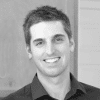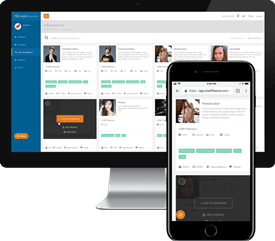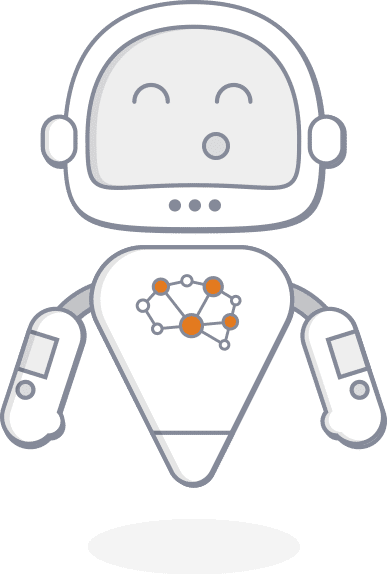Last Updated on January 7, 2021
Cassandra Bankson is an American model, skin care guru and online personality from San Francisco, California. Cassandra has been featured on Good Morning America, The Today Show, and The Anderson Cooper Show in addition to Vogue, Seventeen, Glamour, In Touch Weekly and Us Weekly magazines. Cassandra’s platform is passionate about cruelty-free, vegan and natural skincare and makeup, as well as travel and wellness. You can follow Cassandra Bankson on YouTube, Facebook and Instagram, to name just a few.
Nine years ago you put out a video with the goal of influencing just one person, and that video has now received almost 29 million views, and you’re an authority on skincare and beyond. Can you tell us a little bit about your background, as well as how you became an influencer specializing in skincare?
I never realized that I was an influencer, or that that was something I was capable of. My history with acne really got the best of my self-esteem. I was bullied in school, and some of the things that I repeated in my own head were worse than what other people said to me. And when you grew up with low self-esteem like that, you don’t ever believe that you could possibly make a difference, or that you could do something noteworthy that other people would want to emulate. But because I was so insecure with my acne, I started covering it with makeup, which I was able to end up modeling, because I covered it so well. And I was doing modeling for like five or six years when I realized that I felt like a hypocrite. On one side you have this girl who’s insecure. She can’t even look at her own parents without feeling like she’s a waste of air, because of how horrible she looks. She can’t go outside. She has social anxiety, and life is horrible.
And yet on the other side, when she has makeup on, she has this air of confidence. She’s on magazine covers or billboards. People want to be like her. Those two identities didn’t feel like they fit in the same body. And YouTube was the platform that really taught me everything I knew about makeup. So I decided, you know what? This could ruin my career, this could be the end of me. But the way I feel inside is already the end. So let me share how I put on my makeup every single day, how I hide who I truly am to become someone that people want to see, and maybe it’ll help one other person out there who’s struggling with acne.
And after I posted that video I didn’t even check the internet for about four months, because I was so scared of what people would say. When you hear those things from yourself or from other people. But when I did check back it was overwhelmingly positive, and people were saying, “Wow, I see myself in you”, or, “You’re the first person who has been so open about this”, or, “I struggle with this as well”. And I’m so grateful that throughout the last 10 years I’ve been able to turn this into both a passion and a business. But even moreover, that more people are opening up about their insecurities, because the truth is that we all have them, but if we can influence others to accept them, that’s how we all collectively grow.
And speaking of growth, I mean, obviously you found your voice, and we were looking at researching you, and over 3,500 different projects that you’ve been involved in. As you found this confidence, is there any one or two of these collaborations that really stand out where you found yourself like, “I know that I’m ready and I am it, because I am doing this X, Y, Z project?”
I would say there is one that really sticks out, and it was the first time that my acne, my skin without makeup was recognized. Again, even when I came clean about my skin and about my condition, I didn’t have all of the confidence I needed. It was still a launch pad or a growth point, and growing an audience and going through those insecurities with them is what really helped to build the platform. But about two or three years into this, I was contacted by a L’Oreal brand called Dermablend, and I at first thought they were just contacting me as a model, as a makeup model, and I was like, “Okay, yeah, we’ll put on the makeup, we’ll put on the foundation and we’ll do the thing”, that’s what I’m used to. They said, “No, we want to feature you with acne”.
We want to talk about what acne has done for you and how it has helped you find your strength and your passion for skin and beauty. I was like, really? And to date I look at that picture and from that campaign, it won awards from ad week, it was in Alta, a makeup store, both nationally and throughout hundreds of locations. I look at that and I see years of pain and hiding, but I also see years of building up the stamina to be a strong empowered person, and what it took to come here is all hidden inside of that. And it’s a beautiful photo of just wiping away these cosmetics to show what’s underneath, and it’s about having those confessions and not letting them define you anymore. So that was probably my favorite.
Now we usually ask a dumb question on the flip side of this, are there any collaborations that went sideways? But in looking at your recent videos, you posted a video about you almost promoted a company that scammed you. Now that’s a nightmare scenario for influencers. So I’m wondering if you’ve had, hopefully that was the only experience you’ve had like that, or have there been others, and what advice do you have for influencers so they can minimize that kind of scenario?
My advice for influencers is don’t forget you’re real people, we all make mistakes, and do your homework. When it came to the scam, it was something that was so out of the blue, and nothing like this has ever happened to me before. They reached out as a cancer company saying they were a charity, accepting donations. And having a passion for medicine, and wanting to understand skin, cancer hits really close to home, I said, “You know what, for charity, I will post about this and raise awareness”. But when I looked at the talking points, there was nothing about statistics. There was nothing about warning signs of this cancer. It was just donate, donate, donate. So I did a bunch of extra digging, I took probably an entire day off just to look into this stuff, to email the right people, and realize this looks like a gigantic scam.
They want money, and it’s not even tied to a legitimate organization. So do your homework. Other than that, I’ve never had a scam experience, but I would say as influencers start to grow, you’re going to get contacted by brands. People are going to realize that you influence other people, and they are going to want to align with that. However, there are the people who want to work with you because they love your voice, and there are also the people who want to buy you and turn you into a talking billboard. And what you do is up to you. That’s the beauty of being a human is that you have free choice and free will, but one word of caution I would say is make sure that you are clear when communicating, and if you’re not okay with being bought that you express to a brand or a company or collaboration that this is the style of work you do.
You can tie in their messaging, their product, their service, and their talking points into that, but you are not going to warp yourself and change yourself just for a specific campaign. That’s something I wish I would’ve learned five years earlier.
Yeah, it’s just one of those lessons learned only through history. Obviously, you have a large audience, and so you’re always having to be forward-thinking about how you’re going to put in the content out in front of them. What does your average week look like, as you’re going through the planning of it, the preparation, and the creation?
I would say that no two weeks are the same, just because in the beauty and medical space there’s always new information. There’s always new products, there’s a new trend. Do you tie that in, or do you ignore it? But something that is always the same is the process, and it has changed throughout the years. It used to be Cassandra was feeling a sort of way about her acne. She sat down in front of the camera, she cried, maybe she edited it, probably not, posted it on the internet, and it had horrible audio. And that’s changed a lot in the past 10 years. And so now I start off with an idea, but no idea is worth $1 million. It’s the execution of that. So something we do now is user validate. Meaning, I will post out a tweet or an Instagram story and I’ll say, “Hey, beautiful butterflies, my fans, what do you think of this? Would this be of interest to you?”
Because this could be the coolest idea in my head, but if someone else isn’t going to enjoy that, if I’m not providing value for the people who are watching, I’m wasting my time. I can do that thing for myself, or just not post it here. So after user validation is when we actually start to script, and I don’t like scripting out every word. I think bullet points are best, because then you can still have a natural conversation, like we are. And from those bullet points you can create a story. So whether it’s a beginning, a middle, an end, whether it’s a tutorial with step one, two, and three, you just know the flow of where you’re going. And that way if you want to tie in jokes or a sponsor, you know where you can do that as you gather your props and things.
And then it comes to filming and you do the lights, the camera, the thing with the backdrop, or none, and you talk, I would say try to be natural, but if you don’t want you to, that’s totally fine, too. And after that you go to editing. Most people don’t realize that every single minute of content we produce probably has about an hour of editing behind the scenes. And that’s everything. That’s you. That’s everything from color correction, to audio enhancements, to adding music, jump cuts, B-roll. B-roll is basically secondary footage. So if I’m talking about applying my eyeliner, I’ll have video of me actually doing it. Or if I’m talking about surfing in the ocean with waterproof foundation, I’ll show the surfing. And that’s technically two shoots that you have to set up to put in that one video. But after the editing you get to render, export and upload.
And this is the best part, because once you hit publish, you actually get to see what other people say, and how your contact has impacted them, or how they’ve been waiting for this, or start to have those new conversations and get new ideas that you can put back into the system. And most people think it’s done there. But I would say really work on promoting that, because it’s not done yet. So put it on your other socials, and then look at your analytics. Your best video should be your last one, because you’re learning every step along the way. And that’s where tools like Intellifluence or any other platform where you can look at analytics and understand what you can do better really comes in. Because if you’re not growing, you’re just spitting out content. Who knows if it’s going anywhere.
Whenever I ask this question, a lot of the times the answer I get from influencers is video. But you’ve been in the video game for years, a lot longer than most of us have. So I’m really curious to see, where do you see influencer marketing headed in the next five years or so?
It’s a great question, and unfortunately I am not a fortune teller, as much as I would like to be. I have noticed some changes in the industry. There’s this talk about is the influencer bubble bursting? I personally don’t think it is, as long as I’m not biased. And here’s why. You are an influencer. Think about who you influence in your daily life. If someone asks you for a movie recommendation, for an opinion on their outfit, you’re already influencing people. If you want to do that on a larger scale, it’s just about going for it.
Social media is the new resume. It’s the new platform, and it’s the new portfolio. I don’t think that’s bursting or going anywhere quickly. I do think influencing is going to change, however. When we first saw influencers, they were juxtaposed next to celebrities. Celebrities were perfect and untouchable and beautiful. We wanted to emulate them, but then influencers came in and a lot of them were relatable and real, but they felt like our friends and we still wanted to be like them. I think that influencer marketing and the influencer space will change a little bit. There’s going to be this medium ground between, I know you’re not my best friend and you say you love me, but we really haven’t talked in real life, versus you’re celebrity. You’re untouchable. You don’t understand my struggles. It’s going to be in between, and I think that it will continue to evolve, especially because influencers generally do share so much about their personal lives, but I think the more you can stay on top of trends, stay true to yourself, and provide that value to your audience, the better you’re going to do.
And again, if you’re already influencing someone, if someone asks you for your opinion, you’re already an influencer. Get to it.
What advice would you give that person that really is just beginning? I think everyone gets in their head so much with that crippling fear. Is it just go publish and deal with the consequences later or go away for four months? What’s your one takeaway?
My biggest piece of advice would be just get started. Everyone is insecure about their voice. Everyone is insecure about what they look like, or they don’t have the right tools, the right camera. I started with a literal laptop webcam in some window lighting in my parents’ living room in front of an ugly floral couch.
If you don’t get started, you can’t make those mistakes and grow along the way. I used to be afraid of failure, and that was the worst fear. Because if you’re afraid of failure, you’re not willing to try. So lean into that discomfort, get uncomfortable. Face those fears, whether it’s your voice, whether it’s your equipment, whatever it is, just get started. A good backdrop is literally a wall or a bed sheet. Your best lighting is going to be from your window, and if you have a smartphone, you have a built in camera, which is a lot more than I could have said 10 years ago. So just get started and learn along the way.

Andrew is the Head of Client Services for Intellifluence and has a background in communications. He is committed to helping brands get the most out of their campaigns and is the co-host of the Influencer Spotlight series.





